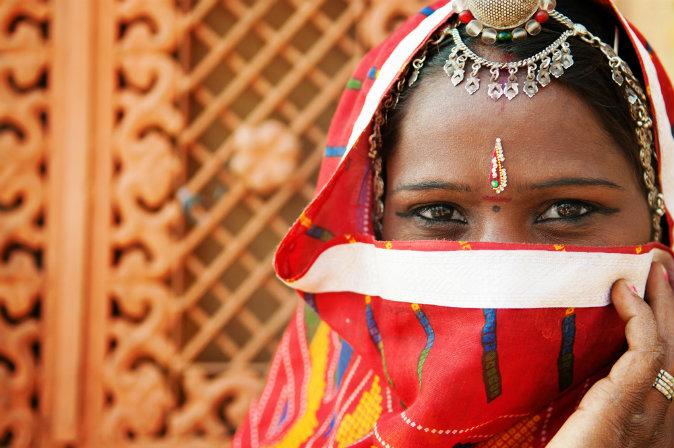Original article on www.gonomad.com
Nobody warns you that when you visit India, your mind stretches and never returns to its original size. It’s happening to me now. I saw and did so much in such a short time the impact is just starting to take root.
Crushing Poverty, Inner Beauty
The crushing poverty is mortifying and the polluted heat is exhausting but inevitably I am inspired by the beauty.
I’m not talking about the Taj Mahal or the Sacred Temples or even the Ganges River, though these places are incredible. The inner beauty of India comes from the lowest class, the Shudras and then even below that, the Dalits.
Chennai, once known as Madras, is a mercantile port city in the southern equatorial tropical region. Very few tourists visit, and of the six million people who live here, only 3% are Caucasian.
Great Shopping
Like most cities in India, Chennai is unbearably humid, dirty and crowded. It is however a expansive city on the Indian ocean with temples, parks, great shopping and the longest beach in the world.
We pull into its dusty port welcomed by a group of ‘Ravi Shankar look-alike’ musicians playing beautifully on stringed instruments. I’m not sure if the instruments are sitars but before the five-day visit is up, they'll show me how hard it is to play one. Behind the musicians are Sudra women sweeping away puddles of water. They are sweeping for us.
Five-Tiered Caste System
Our Global Studies Professior prepares us for the economic hierarchy we’re about to see. Beyond the port are several more women sorting through piles of rubble and trash. They scurry around sweeping up recyclables and stashing the bundles under their arms.
India’s soaring population still functions within a five-tiered caste system and garbage and recycling efforts are an intergral part of it. ‘Waste pickers’ is a lucrative profession for a Shudra or manual laborers, one class above a Dalit. They earn up to $3 a day and many ply their trade in major Indian cities. These women take pride in the small pittanance they make, all the while keeping the streets clean and providing a more sustainable environment.
Each task in India is important and the pay scale is determined by where you are in the caste system. This is democracy for India and I’m impressed by the care and diligence they place in their roles.
No Safety Net
Rapid industrialization and population growth have reinvented ways of making money for the upper and middle class and from first glance it appears that globalization is a positive influence. Then I see the thousands of poor and hungry huddled in masses alongside major roads and under bridges. Most governments provide safety nets to catch the truly needy, but not in India. Hinduism, the national religion binds them to social stratification and for 160 million oppressed people, poverty is all they know.
Leaving the port and hailing an auto-rickshaw may be the quickest way to get around Chennai but it’s also the most frustrating. I quickly learn how to bargain for a fair price on transportation but my temperament is pushed to the limit.
No Place For Shy Introverts
For those that are the least bit unnerved by pushy peddlers, I would rethink visiting India. This is no place for indecision or shy introverts. Peddlers will reach for your arms, legs, and clothing with no regard for your personal space. Rarely do they care if they upset you.
The first few days I think it’s humorous and sweet - how they vie for my attention and flatter me in broken English, but by the last day it’s frustrating and unrelenting: “I said ‘No,’ damn it! What part of ‘No’ don’t you understand?”
This is a lesson valuable to consider before visiting second and third world countries in large groups. Persistent hassling is part of the experience.
Out of Control
When I finally agree on a price for a rickshaw, it’s the second scariest thing I’ve ever done -- skydiving still holds the record. Roads are newly paved in Chennai and traveled by everyone with a set of wheels. Mine acts like there’s a life worth saving racing through traffic like an out-of-control ambulance driver.
Even when traffic backs up, he clocks in at 30 mph with incessant use of a squeaky horn. I get a headache in no time. With one last crazy hairpin turn, the rickshaw sputters to a sudden stop. We’ve run out of gas. The driver jumps out and starts pushing from behind.
At the closest gas station, he acts penniless and asks if I can front half the money now and pay the other half later. I act defiant to call his bluff. Ten minutes later we’re still idle and the gas attendent is yelling for us to pump or pull out. I relent and toss him the rupees and the ride continues.
Brash Persistence
Finally, he drops me off at the cafe where my friends and I arranged to meet. I hastily throw him the other half but now he insists on more. I’m late on his account and now he wants me to pay more? I toss him a few extra, he accepts graciously and then shadows me straight into the Cafe.
I order a mango lassi with fresh tandoori bread as he quietly pressures me for more money. Management turns a blind eye to the intrusion and now he recants and wishes to be my ‘personal rickshaw driver’ for the day. The man is incorrigible.
Honing my vocal cords in a country that doesn’t take no for an answer is pointless. It feels rude and it is rude but my only recourse is to ignore him. This whole scenerio disturbs me but I’m about to enjoy authentic Indian cuisine and my driver’s pleas are growing faint.
Copyright © 2014 by Go Nomad. This article was written by Sony Stark and originally published on www.gonomad.com
*Image of Traditional Indian woman via Shutterstock

